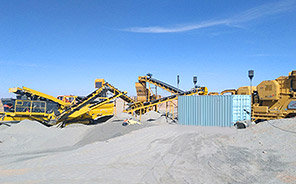Starting a small rock quarry involves careful planning, significant investment, and compliance with legal and environmental regulations. Here’s a step-by-step guide to help you get started:
.jpg) 1. Research & Planning
1. Research & Planning
– Market Demand: Assess the demand for crushed stone, gravel, or other quarry products in your area (e.g., construction companies, landscaping businesses).
– Site Selection: Look for land with suitable rock deposits (granite, limestone, sandstone, etc.). Geological surveys can help identify viable locations.
– Feasibility Study: Estimate costs (land purchase/lease, equipment, permits) and projected revenue.
2. Legal & Regulatory Requirements
– Business Registration: Register your quarry as a legal business entity (LLC, corporation, etc.).
– Zoning & Land Use Permits: Ensure the land is zoned for mining/quarrying. Obtain local government approval.
– Environmental Permits: You may need an Environmental Impact Assessment (EIA) and permits from agencies like the EPA (U.S.) or equivalent bodies elsewhere.
– Mining License: Apply for a mining permit or mineral rights from state/provincial authorities.
3. Secure Funding
– Estimate startup costs (land, equipment, labor, permits).
– Explore financing options: bank loans, investors, government grants for small businesses.
4. Acquire Land & Equipment
– Purchase or lease land with viable rock deposits.
– Essential equipment may include:
– Excavators / bulldozers
– Rock crushers / screening plants
– Haul trucks / loaders
– Drilling & blasting tools (if necessary)
5. Set Up Operations
– Hire skilled workers (miners, machine operators, safety officers).
– Develop a site plan for extraction, processing, and transportation.
– Implement safety protocols (OSHA compliance in the U.S.).
6. Begin Extraction & Processing
– Remove overburden (topsoil/vegetation) to expose rock deposits.
– Extract rock using drilling/blasting or mechanical methods.
– Crush and screen rocks into desired sizes for sale.
7. Sales & Distribution
– Sell directly to construction firms, landscapers, or wholesaler
– Market your products online and through local networks.
8. Environmental & Reclamation Plans
– Follow regulations for dust control




